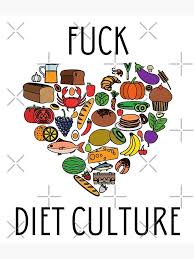In a world inundated with fad diets and rigid eating rules, the concept of intuitive eating stands out as a refreshing approach to nourishing both the body and the mind. At its core, intuitive eating encourages individuals to listen to their body’s signals, honor their hunger and fullness cues, and cultivate a healthy relationship with food free from guilt or restriction.

One of the most profound benefits of intuitive eating lies in its positive impact on mental health. Unlike traditional dieting, which often promotes a cycle of deprivation followed by overindulgence, intuitive eating fosters a sense of mindfulness and self-awareness around food choices. The difference is shown as dieting creates a sense of anxiety and guilt while intuitive eating creates a sense of curiosity and self discovery. By tuning into hunger cues and eating according to internal signals rather than external rules, individuals can develop a greater sense of autonomy and empowerment over their eating habits.
Research has shown that intuitive eating is associated with improved body image and self-esteem, as individuals learn to trust their bodies and reject harmful dieting narratives. Rather than viewing food as the enemy or succumbing to feelings of guilt and shame, intuitive eaters embrace a compassionate approach to nourishment, focusing on nourishing their bodies with foods that make them feel good both physically and emotionally.

Moreover, intuitive eating can help break the cycle of emotional eating by encouraging individuals to explore the underlying reasons behind their food choices. Rather than using food as a coping mechanism for stress or emotional distress, intuitive eaters learn to identify and address their feelings in healthier ways, ultimately leading to a more balanced relationship with food and emotions. Although emotional eating can still occur, it becomes a learning tool instead of a form of punishment which is taught in diet culture.
The benefits of intuitive eating extend beyond individual well-being to encompass broader societal issues such as weight stigma and discrimination. By challenging the notion that thinness equates to health and worth, intuitive eating promotes a more inclusive and compassionate approach to health that celebrates diversity and individuality.

In essence, intuitive eating offers a holistic approach to nourishment that prioritizes both physical and mental health. By embracing mindfulness, self-compassion, and a non-restrictive attitude towards food, individuals can cultivate a more positive relationship with eating and enhance their overall well-being. As we continue to navigate the complexities of modern-day nutrition, intuitive eating stands as a beacon of hope, offering a path towards greater health, happiness, and self-acceptance.
